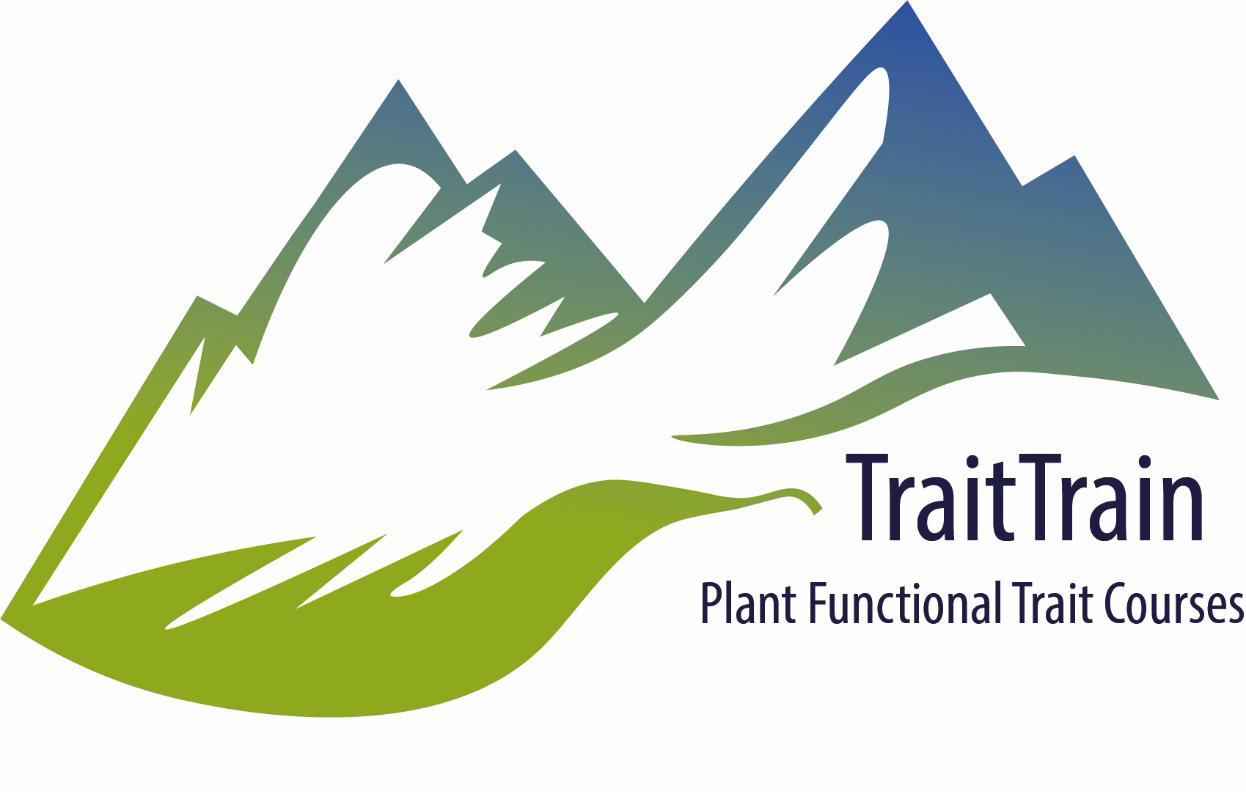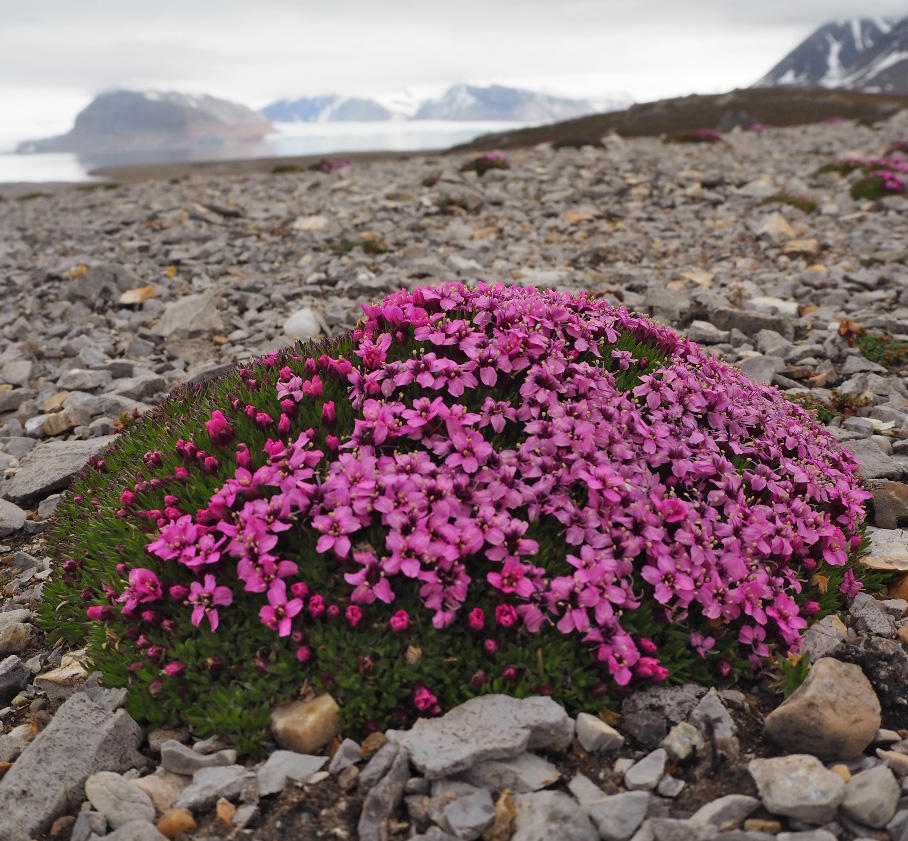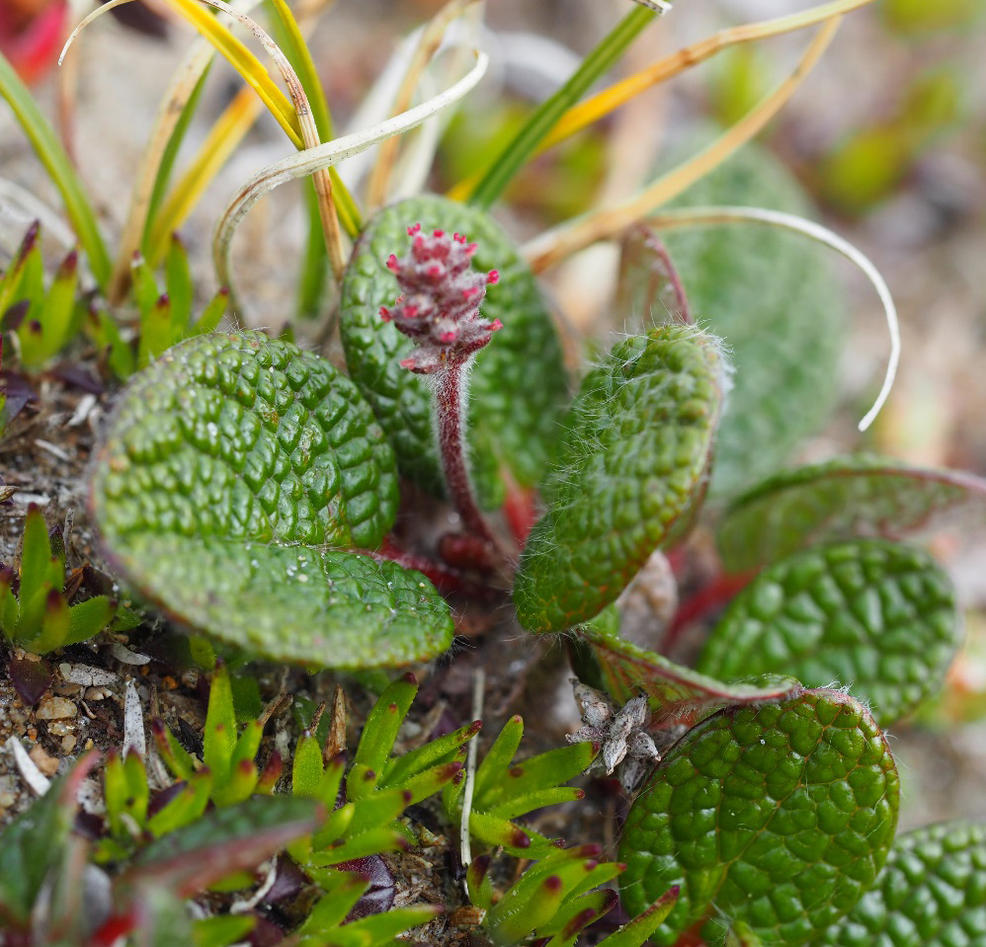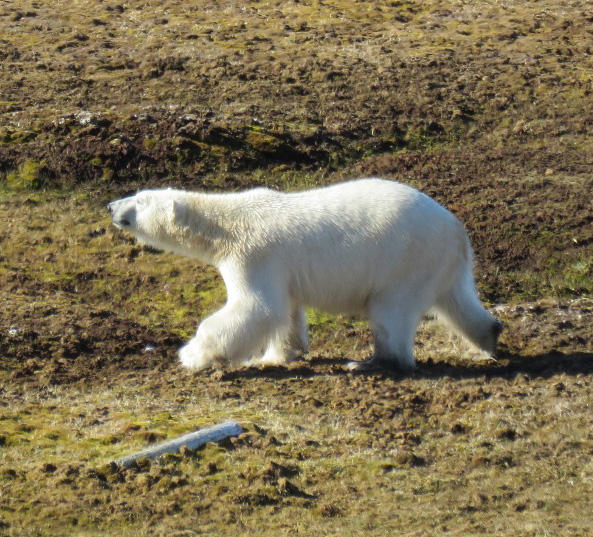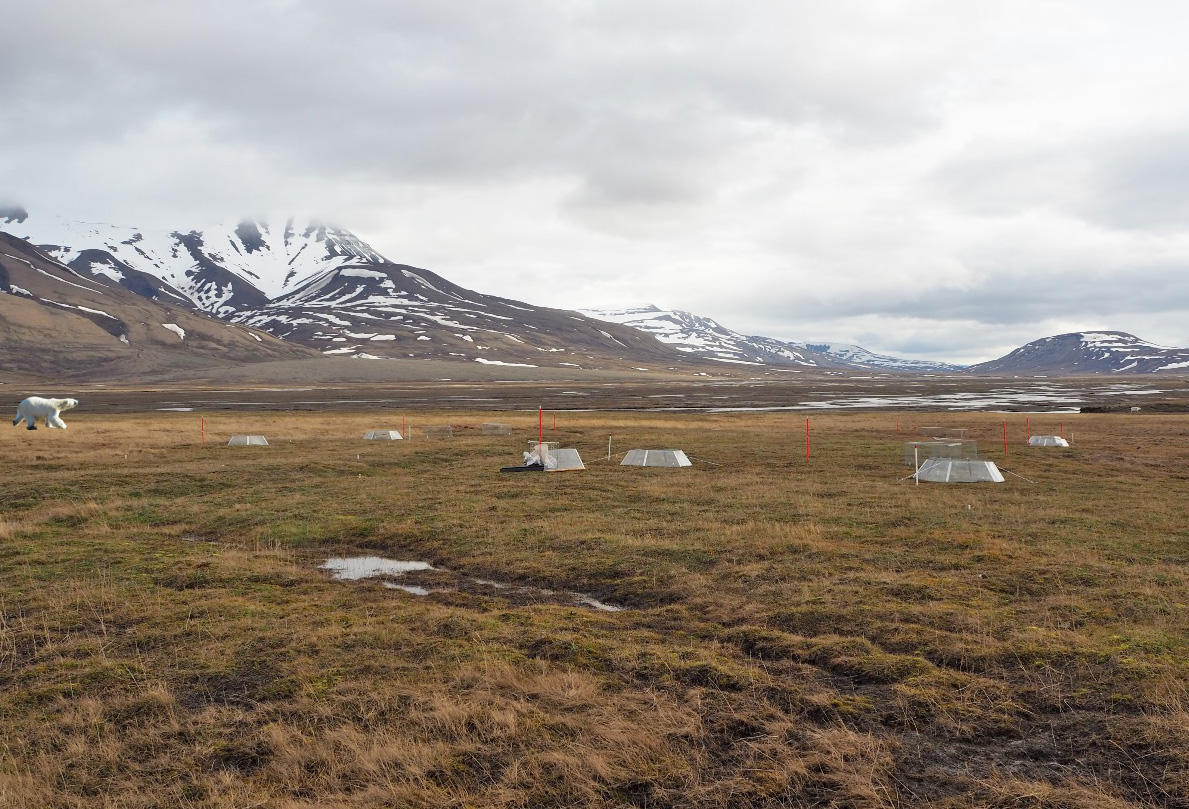Plant Functional Traits Course 4
The 4th TraitTrain International Plant Functional Traits Course was held at the University Centre in Svalbard, Norway, 16-27 July 2018

Hovedinnhold
The TraitTrain International Plant Functional Traits Courses offered a hands-on experience with collecting and exploring plant functional traits data in a real-life field research project setting, along with an introduction to the use of plant trait data in climate-change research and ecosystem ecology.
Trait-based ecology incorporates important new methods and approaches that enable a more powerful approach to predict how climate and biotic interactions shape plant community dynamics and ecosystem functioning. This course provided students with essential background information and the skills needed for doing research within trait-based ecology.
TraitTrain4 addressed several core scientific questions with an emphasis on key skills: (i) collecting original data in the field, (ii) developing data management skills; (iii) developing computational and statistical skills; and (iv) generating data summaries and basic hypothesis tests. Students were given hands-on instruction in the theory and methods of ecophysiology, community ecology, population biology, and computational biology.
The TraitTrain4 course was held at Longyearbyen on Svalbard, Norway (in the High Arctic, at 78°N), 16-27 July 2018. The fieldwork was carried out at different locations in and around Adventsdalen, both along local bioclimatic gradients such as elevation (0–300m a.s.l.) and in different pre-existing field experiment locations related to climate, grazing pressure, and nutrient availability in high-arctic ecosystems. Participants were introduced to the environmental, ecological, and taxonomic diversity of the region, and were involved in one of the following projects:
- Assessing the role of climate and biotic factors in determining plant community leaf trait composition
- Assessing how temperature variation and leaf functional traits influence leaf ecophysiology
- Using a trait-based approach to assess how local plant communities and populations respond to experimental climate and grazing treatments
- Measuring how functional trait composition influences ecosystem functioning by measuring CO2-flux within and across plant communities
- Assessing canopy traits through reflectance spectra: from leaf to landscape-scale using drone technologies.
The course was aimed at graduate students – both MSc and PhD – and gave a broad introduction to and hands-on experience of trait-based ecology. Participants worked with international instructors, in teams, and collected data in the field to address a specific research question. They gained practical experience in measuring plant functional traits and learnt standard protocols and several methods. They became familiar with taking measurements using ecophsyiological equipment including the LiCor 6400 and LiCor 7500. They learnt about the structure and analysis of trait data, were introduced to best practice data management and reproducible coding, and had the opportunity to analyse and interpret data.
The course was organised by Professors V. Vandvik from the University of Bergen in Norway and B. Enquist from the University of Arizona in the USA in collaboration with Inga Svala Jónsdóttir and Pernille B. Eidessen at UNIS.
